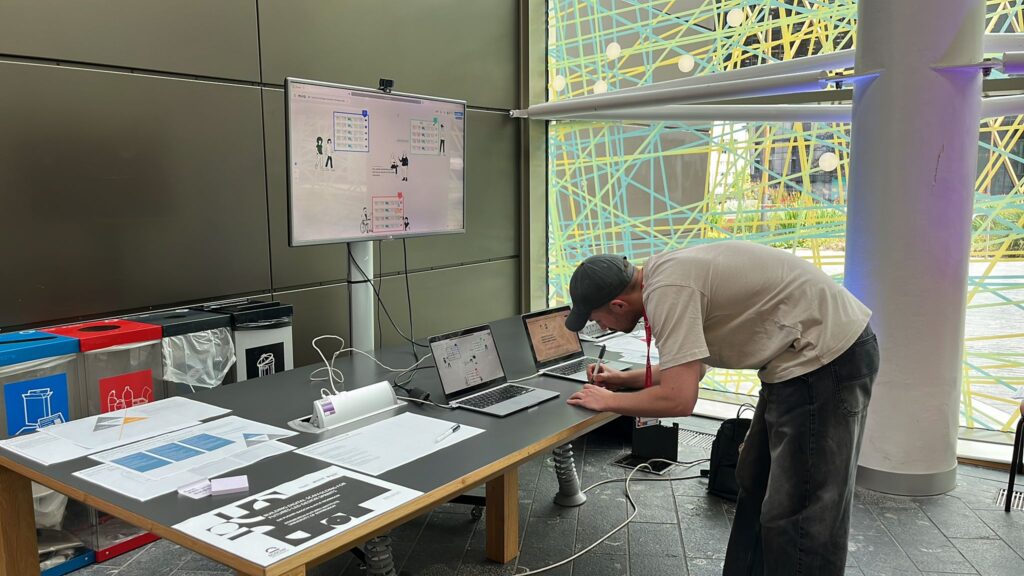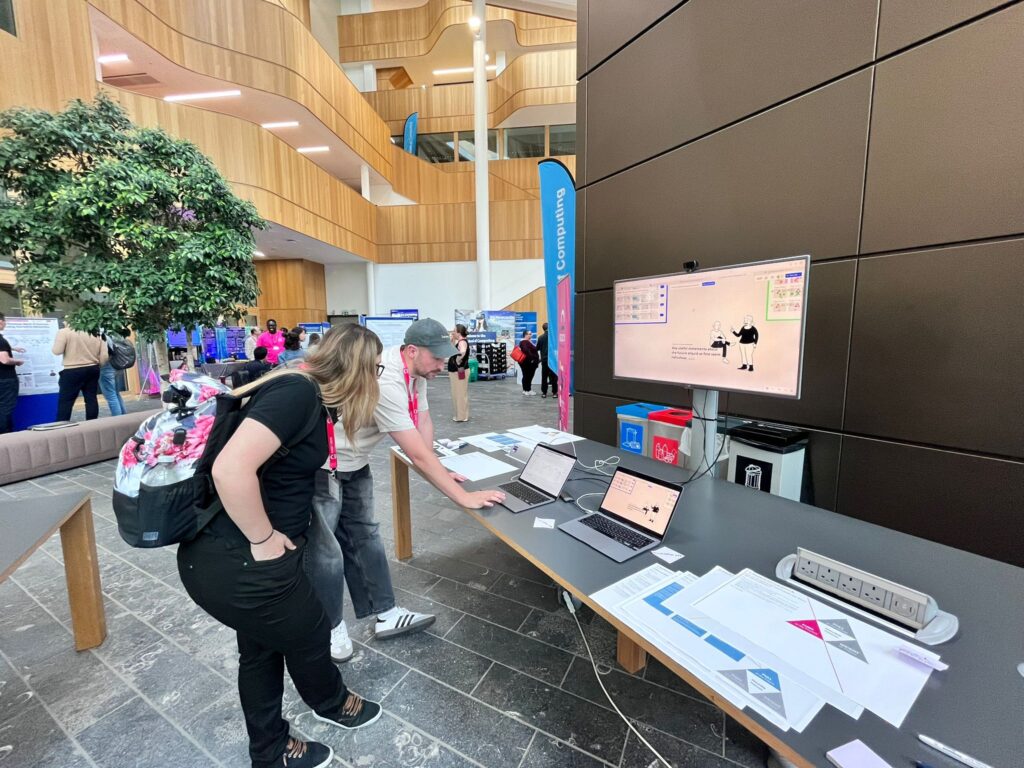In July 2025, the Futures and Design (formerly Data + Design Lab) team presented our paper, “Building Digital Scaffolding for Futures-led Design Sprints” at the European Conference on Computer-Supported Cooperative Work (ECSCW) hosted by Newcastle University. ECSCW is an established international venue for sharing research on computer-supported cooperative work and collaboration technologies.
Our paper was accepted in the “Exploratory” track of the conference, which focuses on innovative approaches to collaboration technology. The conference’s emphasis this year on civic and community technologies provided an ideal platform to share our research and design-led practice on how technology can support human collaboration across disciplines and sectors.
Adapting Digital Tools for Complex Social Challenges

Our paper demonstrates how the careful adaptation of digital platforms can support data scientists working on social innovation challenges. The insights are based on a two-year case study drawn from the “Cohorts for Change” programme involving over 100 MSc students across 29 postgraduate courses at 13 Scottish universities.
The paper delves into how our team has adapted “Futures Triangle,” a framework developed by futurist Sohail Inayatullah, for digital collaboration environments. It further showcases the integration of Miro (as a digital collaboration space) and Notion (as a knowledge repository) as “digital scaffolding” to support an intensive three-day programme that brings together a rich network of stakeholders.
The Futures and Design Team has co-delivered the Cohorts for Change programme with The Data Lab Academy since 2022, where students tackle real-world challenges posed by organisations such as the Scottish Government, Architecture and Design Scotland, and the Wheatley Group. The latest edition of the programme took place in May 2025.
One student participant noted:
“Working on a project with people I had just met taught me a lot about collaborating in a team and achieving results within a hectic schedule.”
Tom Sharples from the Scottish Government said:
“It was fantastic to present a complex and important challenge and witness it being met with such energy, creativity, and genuinely innovative solutions. I was thoroughly impressed by what the students were able to accomplish in such a short period.”
Strengthening future partnerships and collaborations

This recent publication represents a milestone in the Futures and Design team’s ongoing collaboration with The Data Lab Academy, with the fourth edition of the Cohorts for Change programme currently in the early stages of development.
The programme will continue to involve multiple stakeholders across government, industry, and the third sector, demonstrating Edinburgh Futures Institute’s commitment to cross-sector collaboration and real-world impact.
Over the years, the Futures and Design team has worked with diverse challenge holders, including Improvement Services, Young Scot, the Scottish Government, Architecture and Design Scotland, the Wheatley Group, and the City of Edinburgh Council.
Download the full paperInterested in working with the Futures and Design team? Contact efi.innovation@ed.ac.uk to explore how our collaborative methodologies might support your organisation’s complex challenges.






